
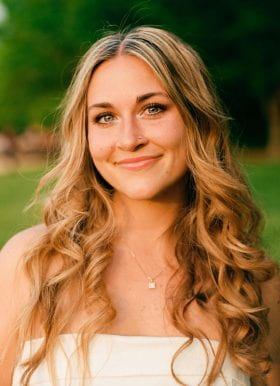
Emma Bednarek
Research Technician II
- Email: bednarek@wustl.edu
Emma is a research technician working with mice and managing the lab’s mouse colony. She recently graduated from SLU with her Bachelor’s degree in Biology and is looking to gain more biological research experience before exploring a career in medicine. She is excited to learn more about the mouse Fat proteins and working with these proteins for a future project. Outside of lab, Emma is learning to play the drums and enjoys taking dance classes.

Alex Earl
Senior Research Technician
- Email: earl@wustl.edu
Alex is a research technician working with fly models and helping with various projects around the lab. His current project explores the Dachsous Intracellular Domain and its role in the Hippo pathway. When Alex is away from the lab, he spends his time cooking and playing video games.
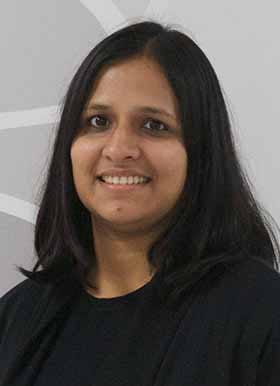
Abira Ganguly
Postdoc
- Email: gangulyabira@wustl.edu
Abira is a postdoc who wants to explore the development and maturation of germ cells through high content imaging. She obtained her PhD from ACTREC, India, exploring nucleus size and shape control mechanisms in diverse model organisms. After her PhD, she spent time understanding collagen homeostasis and vesicular trafficking at CRG, Barcelona. Currently, she is excited about understanding the role of NEMP1 in chromatin organization and fertility. She is happy to explore the world of the nucleus again. She is a new mother, and outside her time in the lab, she loves to spend time with her little one, watching cartoons, reading books and coloring with crayons.

Bilal Hakim
Postdoc
- Email: Bilal@wustl.edu
Bilal is a postdoc with research interests on understanding the processes of oogenesis and embryogenesis. His current main project is how NEMP proteins regulate ovarian aging and how this aging can be reversed to rejuvenate aged ovaries in mice. Outside of the lab, Bilal likes playing cricket and enjoys hiking.
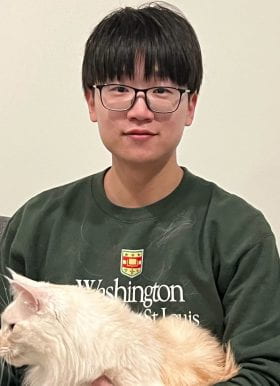
Yuan Hong
Postdoc
- Email: yuan.hong@wustl.edu
The profound science and the tasty coffee in McNeill Lab brought Yuan on board as a postdoc researcher after he grabbed his Ph.D. in Mechanical Engineering from Washington University. His work in the lab is centered on the nuclear envelope membrane protein NEMP1 and its role in cell nuclear mechanotransduction and mechanobiology by perturbing cells and tissue with mechanical loadings. Away from the lab, Yuan enjoys spending time with his loved ones and his furry companions. An outdoor enthusiast at heart, he is passionate about hiking and embarking on road trips, exploring new terrains and experiences.
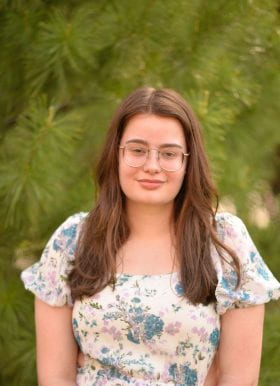
Danielle Illy
Postbaccalaureate Researcher
- Email: illy@wustl.edu
Recent graduate from Truman State University with a Bachelor’s degree in Biology. She’s currently studying variations in protein expression with Nemp1 loss using cell culture models. Outside of the lab she enjoys crochet and baking.
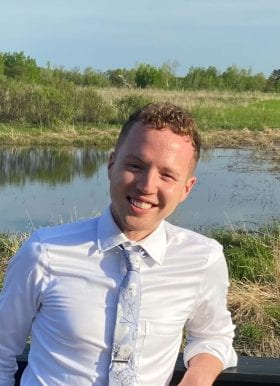
Cole Julick
Staff Scientist
- Email: julick@wustl.edu
Cole joined the lab in 2022 after obtaining his PhD from the University of Nebraska-Lincoln where he studied the energetic and developmental causes and consequences of monarch butterfly migration. Currently, his research investigates the role of Nemp in lipid droplets (LDs) in Drosophila as well as the roles LDs may be playing in the storage of cell lipids and cell stress. Outside of the lab, he enjoys cooking, playing volleyball, and exploring St. Louis with his dogs.

Jennysue Kasiah
Grad Student
- Email: jennysue.k@wustl.edu
Jennysue is a 5th year grad student in the DRSCB Ph.D. program at WashU. She earned her
Bachelors of Biology with a concentration in molecular genetics from Georgia State University
in 2019. Her project is focused on understanding the role that Fat and Dachsous cadherins play during mammalian eye development. Jennysue is passionate about mentorship and science communication. She is the Junior Co-Coordinator for the DBBS Peer-Mentoring program and the Director of Science Communication for ProSPER. In her spare time, Jennysue enjoys alt rock concerts, hiking and is trying get back into reading.
Email: Jennysue.k@wustl.edu
Prosper: https://sites.wustl.edu/prosper/
DRSCB Peer-Mentor Program: https://dbbsstudentadvisorycommittee.wustl.edu/peer-mentor-program/
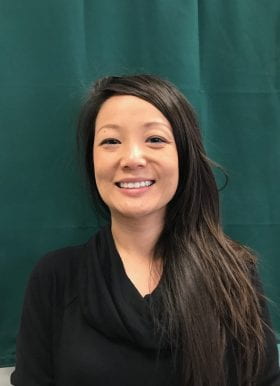
Lisa Lawson
Staff Scientist
- Email: lylawson@wustl.edu
A transplant from the Sunshine State, Lisa received her PhD from the University of Florida where she studied the mechanisms underlying intervertebral disc development. In the McNeill Lab, Lisa looks forward to using her background in mouse genetics and bone biology to investigate how Fat genes regulate skeletogenesis in mice. Outside the lab, Lisa enjoys comedy shows and taking her posse of pups on hikes at Castlewood and surrounding areas.
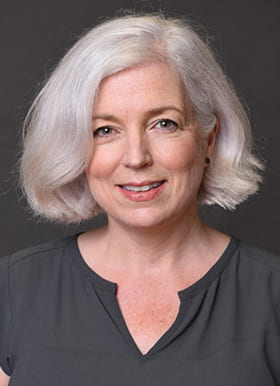
Helen McNeill
- Email: mcneillh@wustl.edu
Helen obtained her PhD at Stanford University with James Nelson, studying how epithelial cell polarity is established, using cultured mammalian cells. She then conducted her postdoctoral studies with Mike Simon ( also at Stanford), using Drosophila genetics to investigate how tissues become polarized, via planar cell polarity signaling. She set up her own lab at the ICRF/CRUK in London England, where her lab first studied Fat cadherins and linked them to the regulation of growth through the Hippo pathway. She then moved her lab to the Lunenfeld Research Institute in Mount Sinai Hospital and the University of Toronto in Toronto, Canada where she expanded these studies to mice and hydra. In 2018, Helen moved to Washington University School of Medicine, where her lab continues to study how groups of cells become organized in development. The lab uses cell biology, genetics and molecular approaches in diverse models ,to understand how Fat cadherins and the Hippo pathway coordinately regulate tissue patterning and growth. Recent work in her lab has expanded to investigation of how chromatin organization and fertility are controlled in flies, mice and humans.